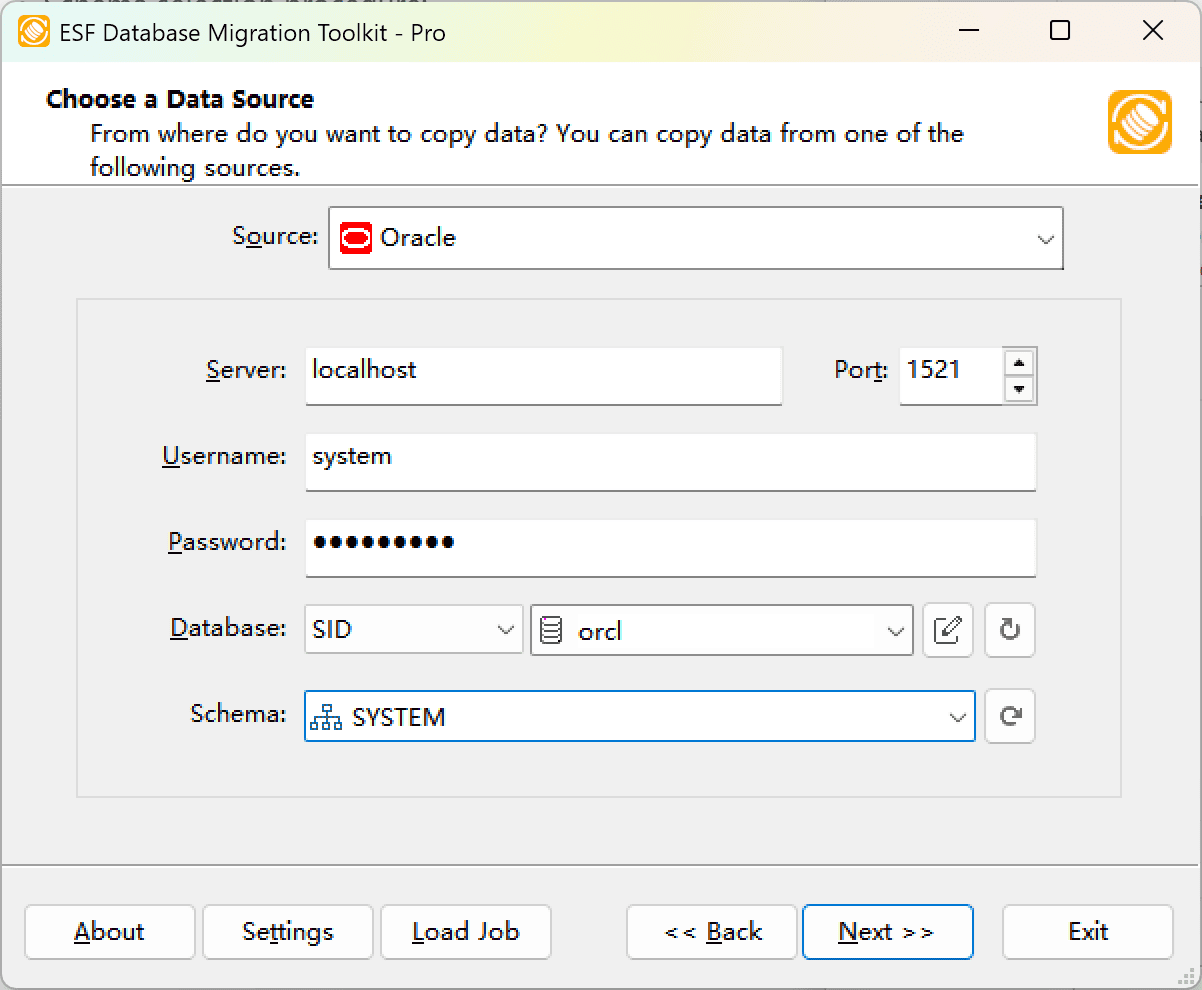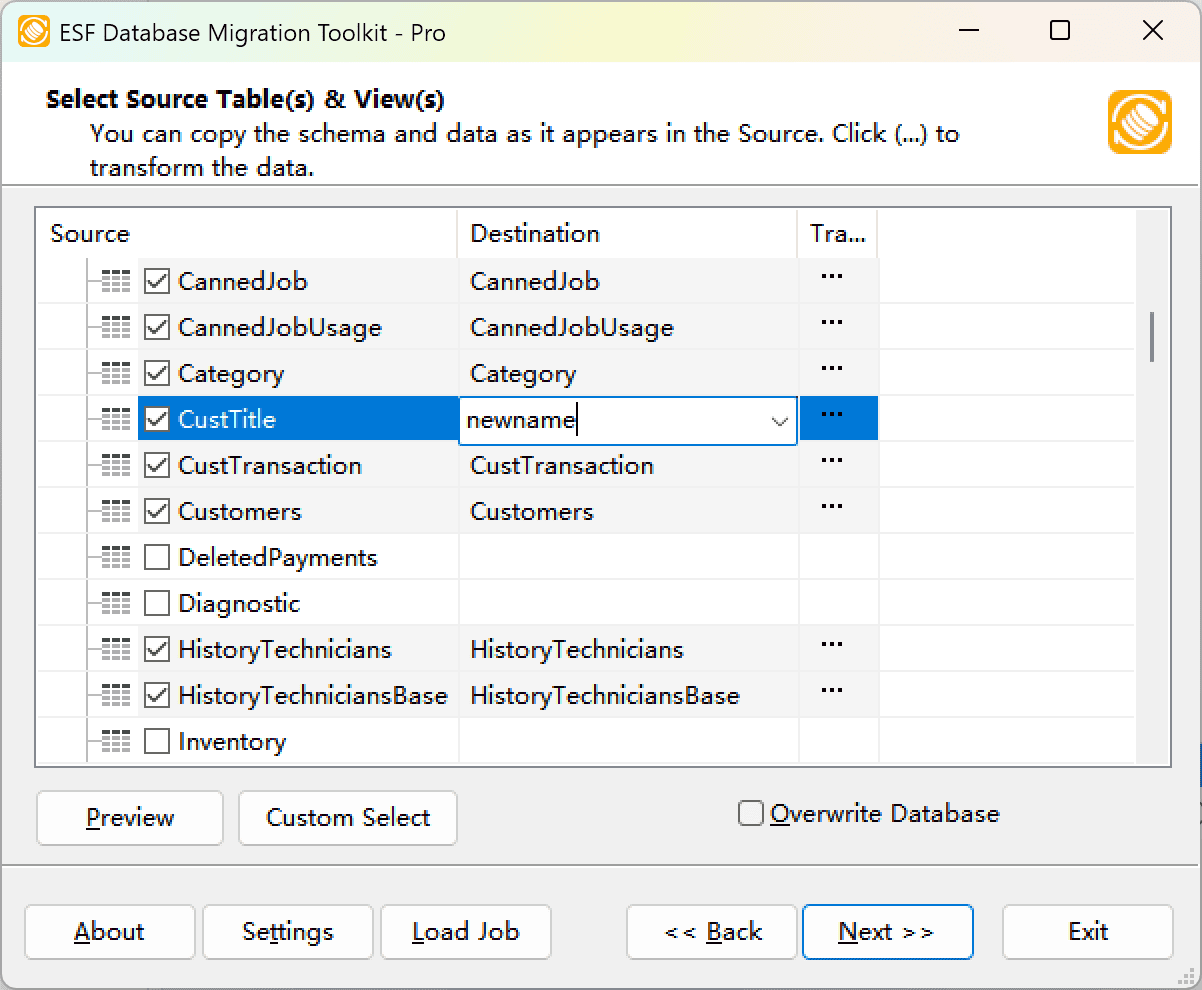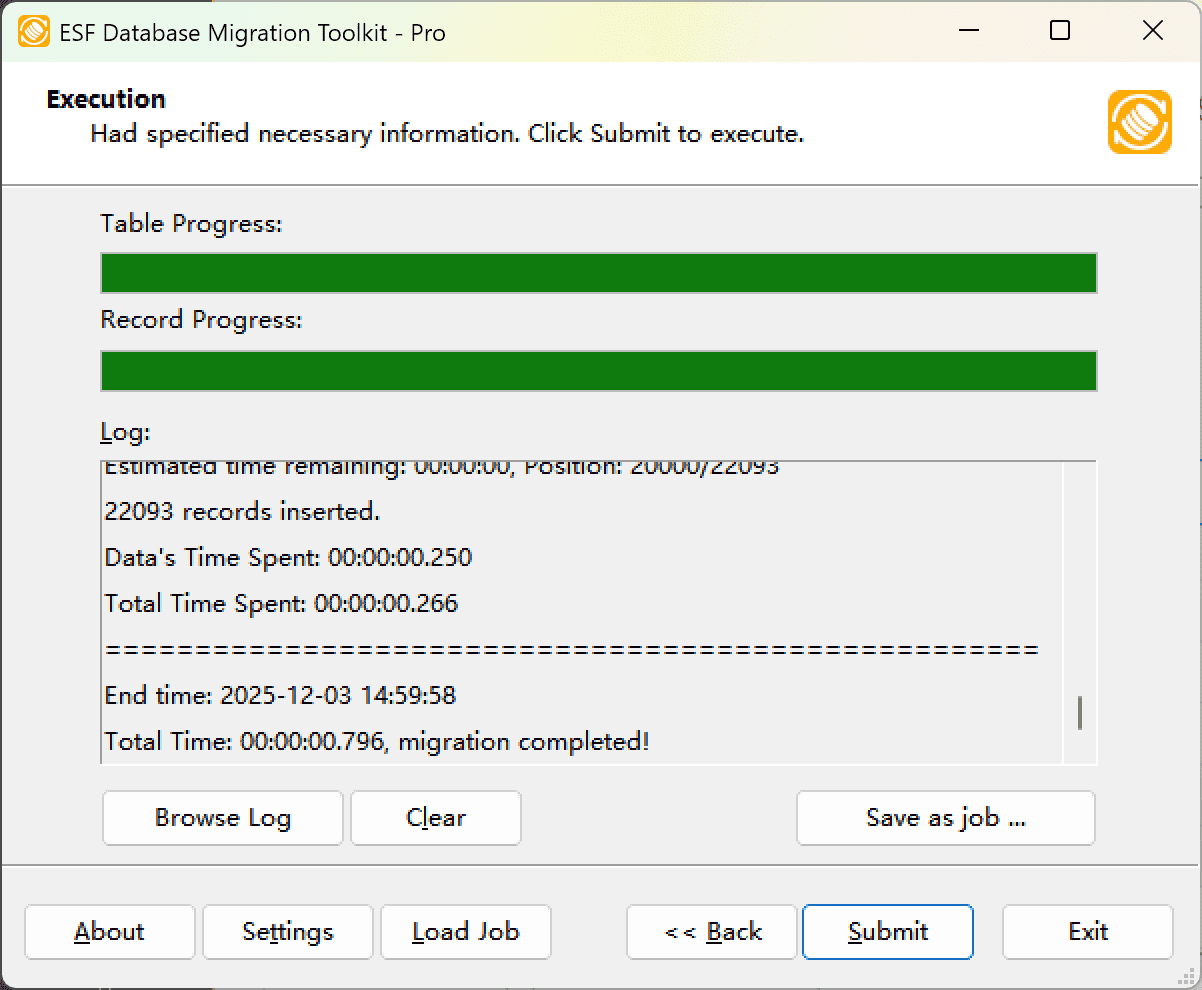Migrate Your Oracle Data to SQL Azure – Effortlessly!
This clear guide demonstrates how to transfer your data from Oracle to SQL Azure efficiently using ESF Database Migration Toolkit.- Execute a step-by-step, reliable migration process.
- Simplify complex data transfers with an intuitive tool.
- Save significant time and effort with automation.
- Modernize your data infrastructure with ease.
Prerequisite:
Software Required:
ESF Database Migration Toolkit »System Supported:
- Windows 7 or higher.
- Oracle 11g or higher.
- SQL Azure.
Step by Step Wizard:
-
Configure Oracle Data Source

Fig. 1: Oracle data source configuration - In the "Choose a Data Source" dialog:
- Select "Oracle"
- Enter server details:
- Server name: localhost (default)
- Port: 1521 (default)
- Provide authentication:
- Username: system (default)
- Associated password
- Select logon method:
- Choose from: SID, Service_Name, or TNS
- Database specification:
- For SID/Service_Name: Enter value in Database field
- For TNS: Leave Database field empty
- Schema configuration:
- Enter schema name (defaults to username)
- Optional: Click Refresh to view available schemas
- In the "Choose a Data Source" dialog:
-
Configure SQL Azure Data Destination

Fig. 2: SQL Azure data destination configuration - Prerequisite:
- Enable access in Azure server's "Firewalls and virtual networks" page
- Add your client IP to the firewall rules
- In the "Choose a Destination" dialog:
- Select "SQL Azure"
- Enter server details:
- Server name: e.g.,
esf.database.windows.net - Port:
1433(default)
- Server name: e.g.,
- Provide authentication credentials:
- Username and password
- Database selection:
- Click Refresh Database to load databases
- Select target database
- Schema selection:
- Click Refresh Schema to load schemas
- Choose existing schema (
dboschema is default)
- Prerequisite:
-
In "Select Source Table(s) & View(s)" Dialog
-
Select migration objects: Choose tables or views to include in the migration.

Fig. 3: Select tables and views -
Modify table structure: Click the ellipsis (...) button to access table options and schema adjustments.

Fig. 4: Do transform -
Configure field mapping: In the Field Mapping options:
- Customize destination fields (name, data type, default value, comments)
- Select data transfer method:
- Overwrite Table (replace existing data)
- Empty Data (truncate before insert)
- Append Data (add to existing data)
- Skip Table (exclude from transfer)
- Apply data filters before transfer
-
Select migration objects: Choose tables or views to include in the migration.
-
Execution Dialog

Fig. 5: Execute migration - Start migration: Click "Submit" to initiate automated data transfer from Oracle to SQL Azure.
- Monitor progress: Click "Browse Log" for real-time migration tracking, including issue resolution details.
-
Save configuration: Click "Save as job" to store settings for:
- Quick reloads of migration jobs
- Command-line execution (use:
dmtc.exe --helpfor parameter options)
-
Migration Completed
Congratulations! Your data migration from Oracle to SQL Azure has finished successfully. This toolkit generates a comprehensive report for verifying migration accuracy. You can monitor progress as the automated process runs efficiently. For any questions or feedback, contact us – our team is ready to assist.